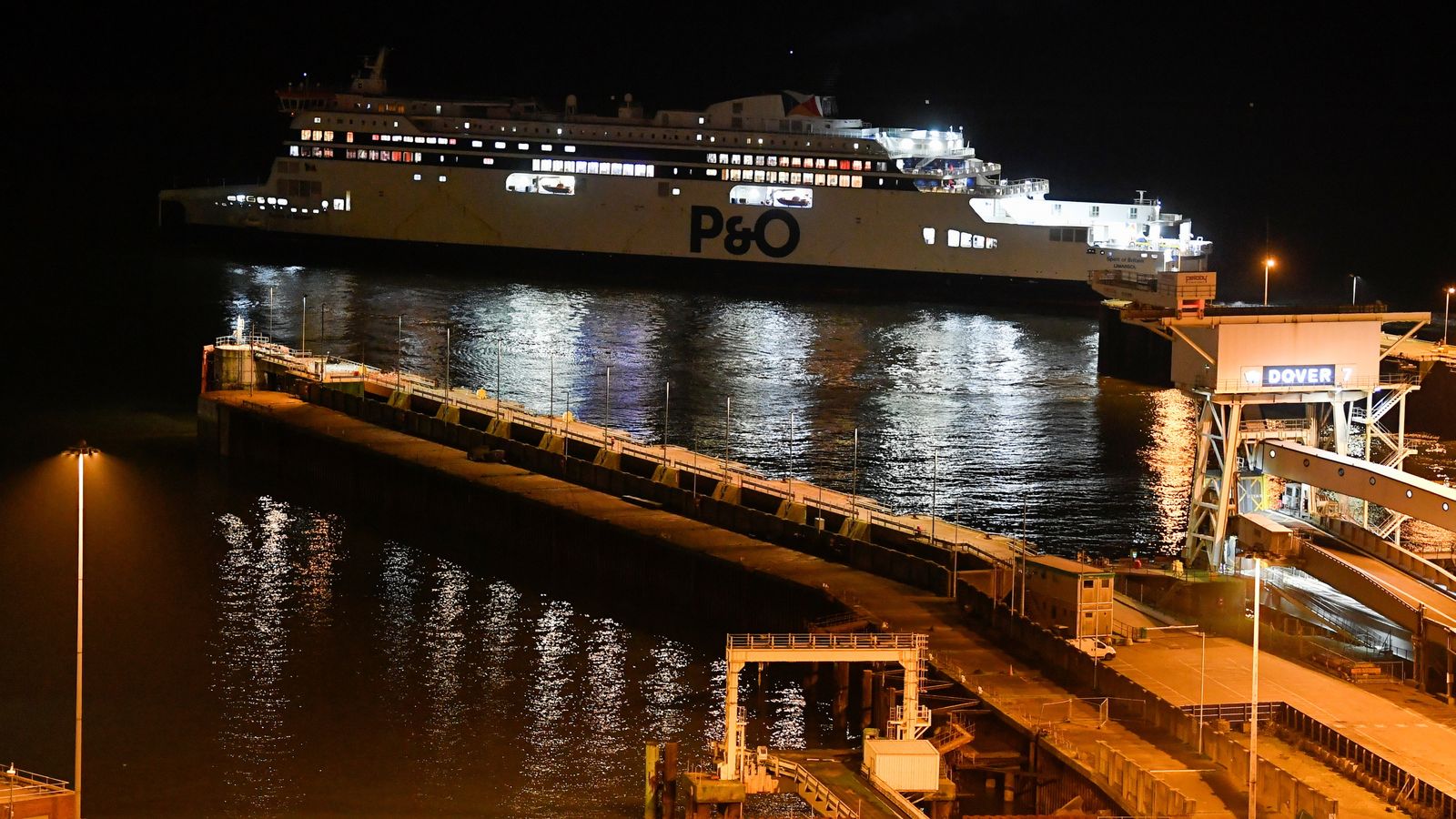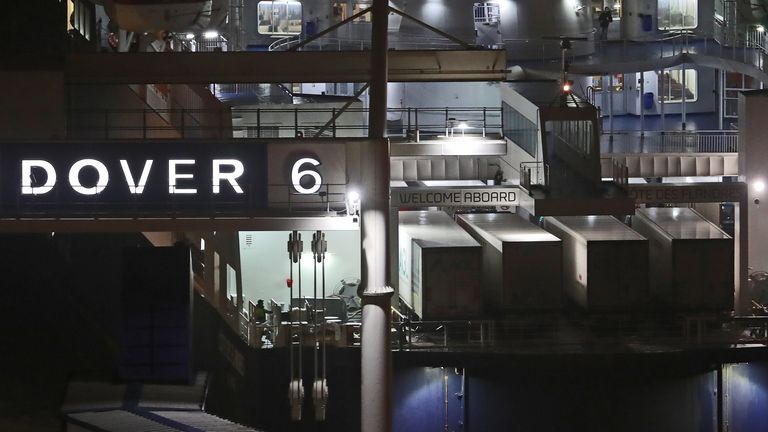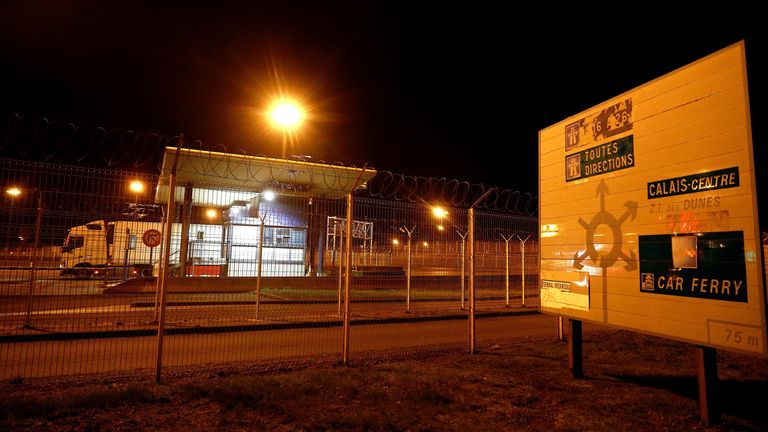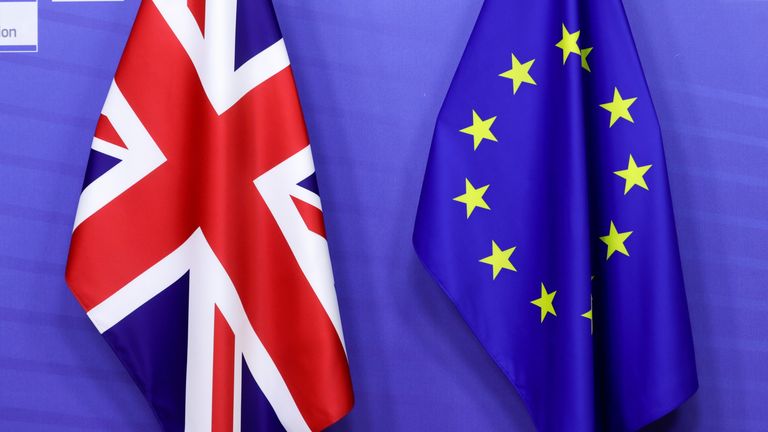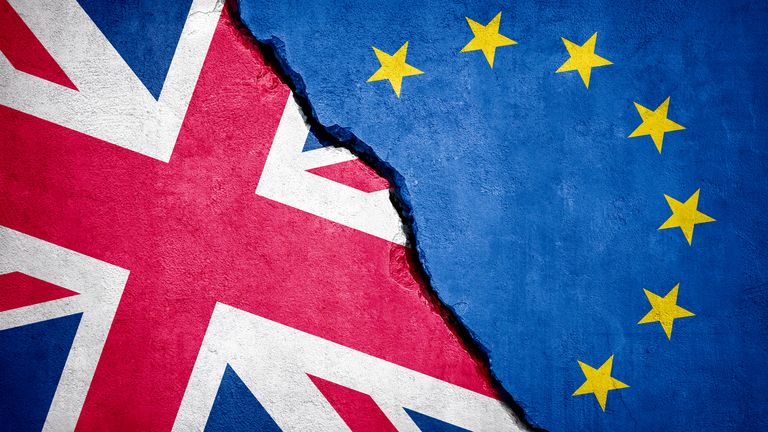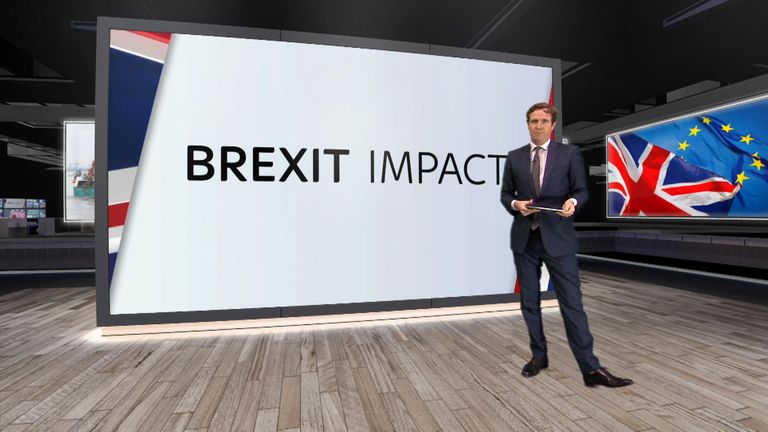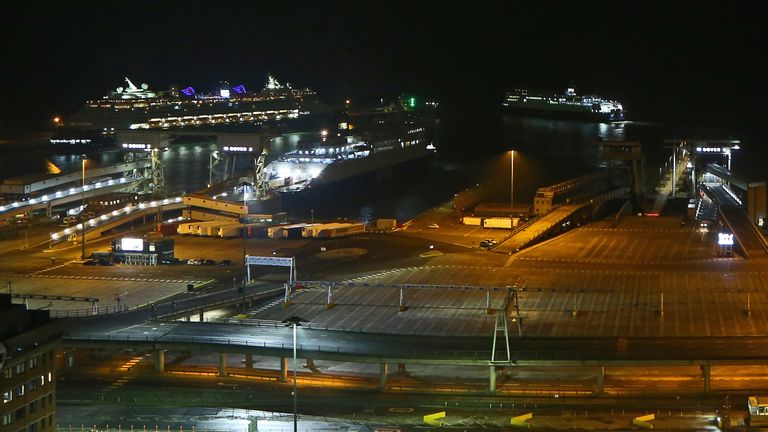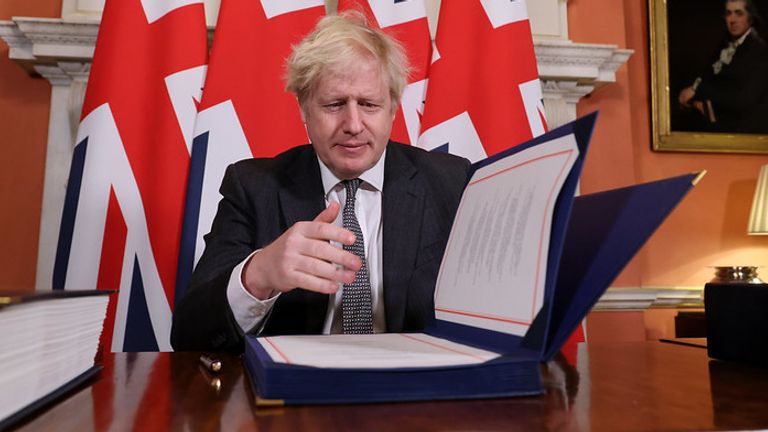The UK has begun a new relationship with the European Union with the Brexit transition period coming to an end.
Despite leaving the EU on 31 January last year, the UK has remained subject to the bloc’s rules as a member of the single market and customs union.
However, this ended at 11pm and the UK and EU will now do business under the terms of a free trade deal clinched a week ago.
The end of the transition period also means widespread changes for Britons on immigration, European travel and more.
Earlier, Prime Minister Boris Johnson said the start of the UK’s new relationship with the EU marked a “new beginning in our country’s history”.
Eurosceptic MPs were delighted, with veteran Conservative Sir Bill Cash saying it was a “victory for democracy and sovereignty” that could only be compared in peacetime with the evolution of modern democracy after the end of the Stuart dynasty.
Fellow Eurosceptic Sir John Redwood, who was among those in the John Major cabinet in the 1990s who railed against closer European integration, said he felt “much relief”.
He said: “I never doubted we would win the referendum. I argued that we were being good Europeans by stepping aside from their mighty task to create a United States of Europe.
“We should wish them well and be friends with them, but the fact that the UK had refused to join the euro showed where our hearts resided – with the wider world and with national democracy.”
Mr Johnson, in a statement that reflected mostly on the coronavirus crisis, said the UK would be “free to do things differently, and if necessary better, than our friends in the EU” in 2021.
He said: “This is an amazing moment for this country. We have our freedom in our hands and it is up to us to make the most of it.
“And I think it will be the overwhelming instinct of the people of this country to come together as one United Kingdom – England, Scotland, Wales and Northern Ireland working together to express our values around the world.”
Mr Johnson wasn’t the only one to refer to Brexit in his New Year address, with French president Emmanuel Macron reinforcing the alliances between the UK and one of its closest neighbours.
He said: “The United Kingdom remains our neighbour, and also our friend and ally.”
A free trade deal agreed on Christmas Eve after months of negotiations means Britain and the 27-nation EU can continue to trade in goods without tariffs or quotas.
But the agreement has been criticised for leaving firms with new paperwork and expenses. It has left some traders struggling to work out how the new rules contained with the 1,200-page document apply to them, as the new relationship comes into force.
There was anxiety about the impact on the logistics industry.
While UK ports including Dover and the Eurotunnel were bracing for delays, lorry drivers are thought to be able to expect a “relaxed” approach from HMRC at first.
There had been fears of disruption but nightmarish visions of miles-long lorry queues may not come to reality as businesses seek to avoid crossing the Channel altogether and customs officials take a “flexible” approach.
But hauliers in Northern Ireland were said to be approaching the end of the Brexit transition with “trepidation”, with many saying they will keep volumes light for the first few days of 2021 as they wait to see what the impact will be.
The Northern Ireland protocol agreement with the EU will keep the land border with the Republic free-flowing, after the EU and UK agreed to move new regulatory and customs processes to the Irish Sea, but that means checks are focused on trade between Great Britain and Northern Ireland.
And the president of the Irish Road Haulage Association (IRHA) said there would be “trouble and chaos” in the coming weeks as systems had not been tested.
Eugene Drennan said hauliers were bracing themselves for significant delays.
There was relief in other quarters after at least two more deals were struck with just hours to go before the new arrangements came into place.
Spain and Britain reached a preliminary agreement to keep Gibraltar’s land border open, and Transport Secretary Grant Shapps said a deal had been done to ensure UK drivers did not need to carry an international drivers’ permit, if they wished to use a vehicle on the continent.
He tweeted: “We’ve now secured agreement with all 27 EU Member States to recognise UK licences WITHOUT the need for an International Drivers Permit. From tomorrow, UK drivers can continue to drive in the EU without an IDP (once Covid restrictions lifted).”
The end of the Brexit transition period will bring to a conclusion to four years of bitter rowing, after 17.4 million voters, or 52%, backed Brexit while 16.1 million, or 48%, voted to stay in the bloc.
Mr Johnson had been among those championing the phrase “taking back control”, yet in his TV address on Thursday he said there would be no bonfire of regulations to build a “bargain basement Dickensian Britain” and that the country would remain the “quintessential European civilization”.
